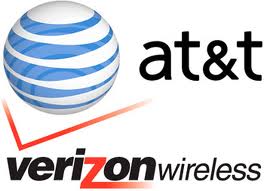
Paul
Three important Republican lawmakers have announced their support of Comcast’s $45 billion acquisition of Time Warner Cable, claiming the combined entity will not affect competition in the cable or broadband market.
Sens. Rand Paul of Kentucky, Lindsay Graham of South Carolina, and Rep. Blake Farenthold of Texas told Newsmax TV’s Steve Malzberg the cable merger does not seem to be a monopoly.
“One of the good things about the Internet … is there’s such of diversity of opinion and so many places to get opinion that all the old-fashioned rules on merger and acquisitions in media really have become outdated,” Paul said. “[There are] so many places to look for a viewpoint … [so] I’m just not much on having the government get involved. Most of the time the government gets involved because another competitor doesn’t like it and that competitor is usually an enormous competitor…. So for the most part, I would let [these] mergers occur.”

Graham
South Carolina’s Lindsay Graham agreed with Paul. Despite the fact South Carolina is now dominated by Comcast and Time Warner Cable, turning the two companies into one does not pose any problem for Graham.
“There’s no competition between Time Warner and Comcast in a cable market, so you’re not creating a monopoly,” Graham said. “There’s competition with satellite, with phone companies, with all kind of things.”
Farenthold expressed concern about “left-leaning” Comcast, owner of NBC and MSNBC, getting larger but cannot oppose the merger on those grounds alone.

Farenthold
“You can’t not approve a merger because you don’t like the companies’ politics. That’s just not right,” Farenthold told Newsmax. “The issue is, is it going to create a monopoly? Well, Time Warner and Comcast don’t compete in any markets or maybe very few markets.”
Two of the lawmakers received contributions from Comcast’s political action committee:
- Graham: $13,500
- Farenthold: $2,000


 Subscribe
Subscribe
 Zain Bahrain began offering mobile broadband packages this week that start at under $32 a month. For video lovers and downloaders, the company charges $53 a month for up to 120GB of usage at speeds up to 25Mbps, equipment included at no extra charge. Customers upgrading to 250GB or 1000GB usage allowances also get much faster performance on the company’s LTE network — up to 100Mbps.
Zain Bahrain began offering mobile broadband packages this week that start at under $32 a month. For video lovers and downloaders, the company charges $53 a month for up to 120GB of usage at speeds up to 25Mbps, equipment included at no extra charge. Customers upgrading to 250GB or 1000GB usage allowances also get much faster performance on the company’s LTE network — up to 100Mbps.
 Comcast customers in Philadelphia are organizing to stop the cable company from winning a 15-year franchise renewal to continue providing service in the city unless the cable operator changes its ways after years of rate increases and poor customer service.
Comcast customers in Philadelphia are organizing to stop the cable company from winning a 15-year franchise renewal to continue providing service in the city unless the cable operator changes its ways after years of rate increases and poor customer service. Central Oregon’s independent cable television and broadband company — BendBroadband — has been sold to Telephone and Data Systems (TDS), a Chicago-based telephone company in a deal worth $261 million.
Central Oregon’s independent cable television and broadband company — BendBroadband — has been sold to Telephone and Data Systems (TDS), a Chicago-based telephone company in a deal worth $261 million.